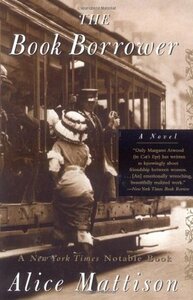Take a photo of a barcode or cover
This book was weird. Not bad, necessarily, just weird. It read like a bunch of disjointed thoughts and images rather than an easy to follow narrative.
The story was good if you were willing to slog through the boring parts. It’s written in a different way as well, so that took some getting used to.
I can understand why readers have trouble with this book. It does take a while to get into - especially because the writing style & structure is so different. I did find that part interesting about the book, and definitely something a book club would have a good time discussing. However, despite the clever writing, I had no connection to the story or the characters in any meaningful way. I found everything quite depressing and uninspired.
Didn't love this book, didn't hate it either. The story was a little quirky, which was fine, but it was the writing style that took some getting used to. Basically, the punctuation was minimal so I had to re-read a lot of parts to follow the story. I guess it's never a bad thing to read something a little "different". This book definitely is different for me.
This isn't a book you have a hard time putting down, and I wouldn't recommend it highly to a friend. Yet I liked it more as I went along and there's something about the writer's descriptions of the honest, lacking characters that sucked me in a bit. When I finished it I couldn't decide if I was bummed or relieved.
This is a story about friendship, and there's a Margaret Atwood (!) comparison on the cover. I liked the setting, and the mood, but never felt like Mattison got us inside the friendship. It was supposedly deep and dear to both women, but that didn't ever come off the page. There was also a fair amount of passivity that drove me 'round the bend. For god's sake, if your son drops out of college and then convinces your dead best friend's daughter to drop out and get engaged, don't you walk the few block to talk with her dad (also your lifelong friend) and figure out what you can do to keep your beloved kids on track?! I might have enjoyed an entire novel based on the '30s labor rights movement & Gussie & sisters . . . BTW, Berry Cooper was not believeable as Gussie, aged. I think Mattison plunked Ruth Gordon (Harold and Maude) into Peter & Toby's lives.
I was reading this one to save it from being weeded but, maybe . . .
I was reading this one to save it from being weeded but, maybe . . .
Just could not get into — the writing style, without use of quotes and skipping between stories, ended up making me stabby. Gave up after 100 pages.
dark
sad
fast-paced
Plot or Character Driven:
Character
Strong character development:
Yes
Loveable characters:
Complicated
Diverse cast of characters:
No
Flaws of characters a main focus:
Yes
Another klunker for me. Returned it to the library without finishing it.
Sounds interesting ... we'll see!!
The pleasures, intimacies, tensions and failures of female friendship frame this subtle, psychologically rich novel, which chronicles the volatile relationship between two women and highlights issues of loyalty, sacrifice and guilt. In brisk, energetic prose, Mattison (Hilda and Pearl) investigates the prickly territory between affection and unconscious jealousy, avowals of devotion and secret betrayals, commitment and selfishness. On the day in 1975 when they meet in a Boynton, Mass., playground with their respective young children, Deborah Laidlaw loans Toby Ruben Trolley Girl, a book about a tragic trolley-car accident that occurred in the town in 1920. Ample, embracing, generous Deborah is a Catholic earth mother. Ruben (she thinks of herself only by her surname) is a harder person, Brooklyn-born, rough-edged, subconsciously resentful, Jewish. Despite their apparent incompatibility and Ruben's competitive streak, the two women sustain a deep attachment over two decades, interrupted twice when Ruben causes Deborah grief (and her job) by denigrating her teaching ability (a profession they both share). But an essential affinity always draws them back together, and they debate existential questions in a quirky sort of verbal shorthand, until the day when Deborah declares to Ruben: "You have a kindness defect," and admits she's frightened of Ruben's harsh assessment of herself and others. Suddenly, Deborah's death in an auto accident and the reappearance of the book Ruben borrowed long ago (passages from which have been interspersed in the narrative) connect. Trolley Girl's protagonistAan unrepentant anarchist who caused the deadly accident when she was youngAturns out to be an elderly sculptor already entwined in Ruben's life. Through her, Ruben achieves insights into the insidious ways unconscious anger can undermine relationships. Mattison constructs her layered plot with the skill of a gem-setter, showing small facets of Ruben's growing understanding of her own failings as a friend and human being, and as she finally understands Deborah's legacy of tolerance and hope. Agent, Zoe Pagnamenta, Wylie. (Oct.)
Copyright 1999 Reed Business Information, Inc. --This text refers to an out of print or unavailable edition of this title
Sounds interesting ... we'll see!!
The pleasures, intimacies, tensions and failures of female friendship frame this subtle, psychologically rich novel, which chronicles the volatile relationship between two women and highlights issues of loyalty, sacrifice and guilt. In brisk, energetic prose, Mattison (Hilda and Pearl) investigates the prickly territory between affection and unconscious jealousy, avowals of devotion and secret betrayals, commitment and selfishness. On the day in 1975 when they meet in a Boynton, Mass., playground with their respective young children, Deborah Laidlaw loans Toby Ruben Trolley Girl, a book about a tragic trolley-car accident that occurred in the town in 1920. Ample, embracing, generous Deborah is a Catholic earth mother. Ruben (she thinks of herself only by her surname) is a harder person, Brooklyn-born, rough-edged, subconsciously resentful, Jewish. Despite their apparent incompatibility and Ruben's competitive streak, the two women sustain a deep attachment over two decades, interrupted twice when Ruben causes Deborah grief (and her job) by denigrating her teaching ability (a profession they both share). But an essential affinity always draws them back together, and they debate existential questions in a quirky sort of verbal shorthand, until the day when Deborah declares to Ruben: "You have a kindness defect," and admits she's frightened of Ruben's harsh assessment of herself and others. Suddenly, Deborah's death in an auto accident and the reappearance of the book Ruben borrowed long ago (passages from which have been interspersed in the narrative) connect. Trolley Girl's protagonistAan unrepentant anarchist who caused the deadly accident when she was youngAturns out to be an elderly sculptor already entwined in Ruben's life. Through her, Ruben achieves insights into the insidious ways unconscious anger can undermine relationships. Mattison constructs her layered plot with the skill of a gem-setter, showing small facets of Ruben's growing understanding of her own failings as a friend and human being, and as she finally understands Deborah's legacy of tolerance and hope. Agent, Zoe Pagnamenta, Wylie. (Oct.)
Copyright 1999 Reed Business Information, Inc. --This text refers to an out of print or unavailable edition of this title
1.5 stars. What was this story about, you may ask? Who knows. The author is actually a very good writer, so I hope her other books are a bit more exciting/have more of a plot. I just didn’t like the story or the characters or the way the author described everything (sculptures, old women, driving, fire hydrants!) in a sexual way. Also, what do people have against quotation marks? Use them! Trust me, they are great. It’s like this magic symbol that lets your reader know when someone is talking. Pretty revolutionary.






